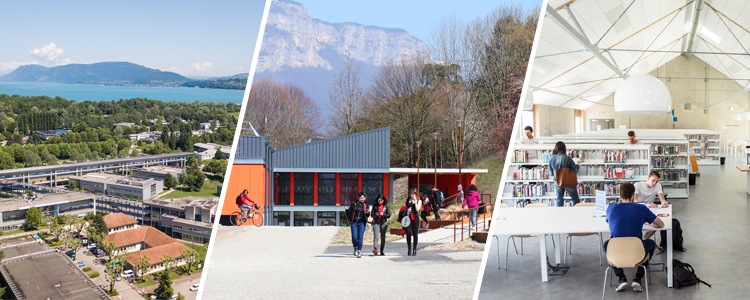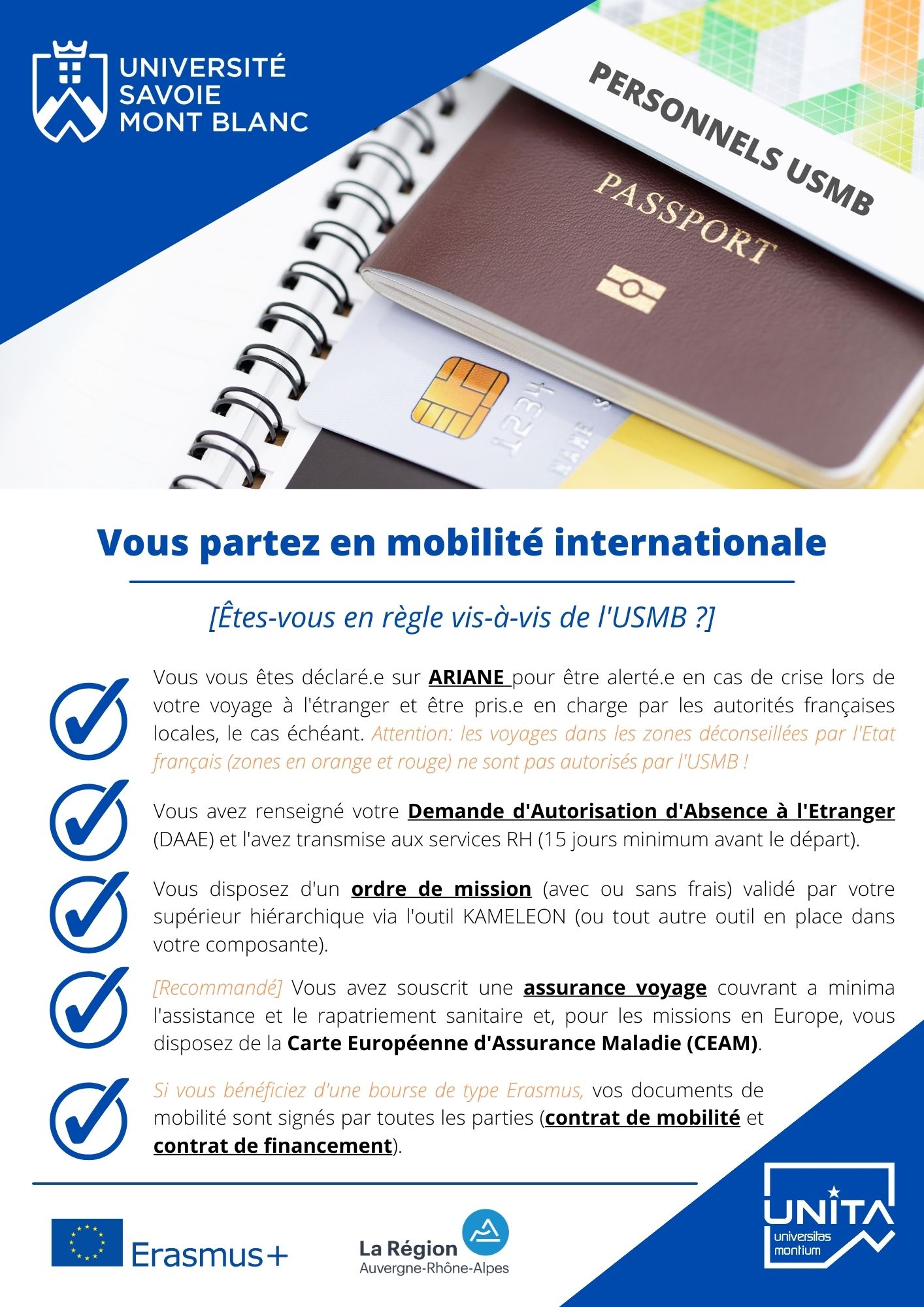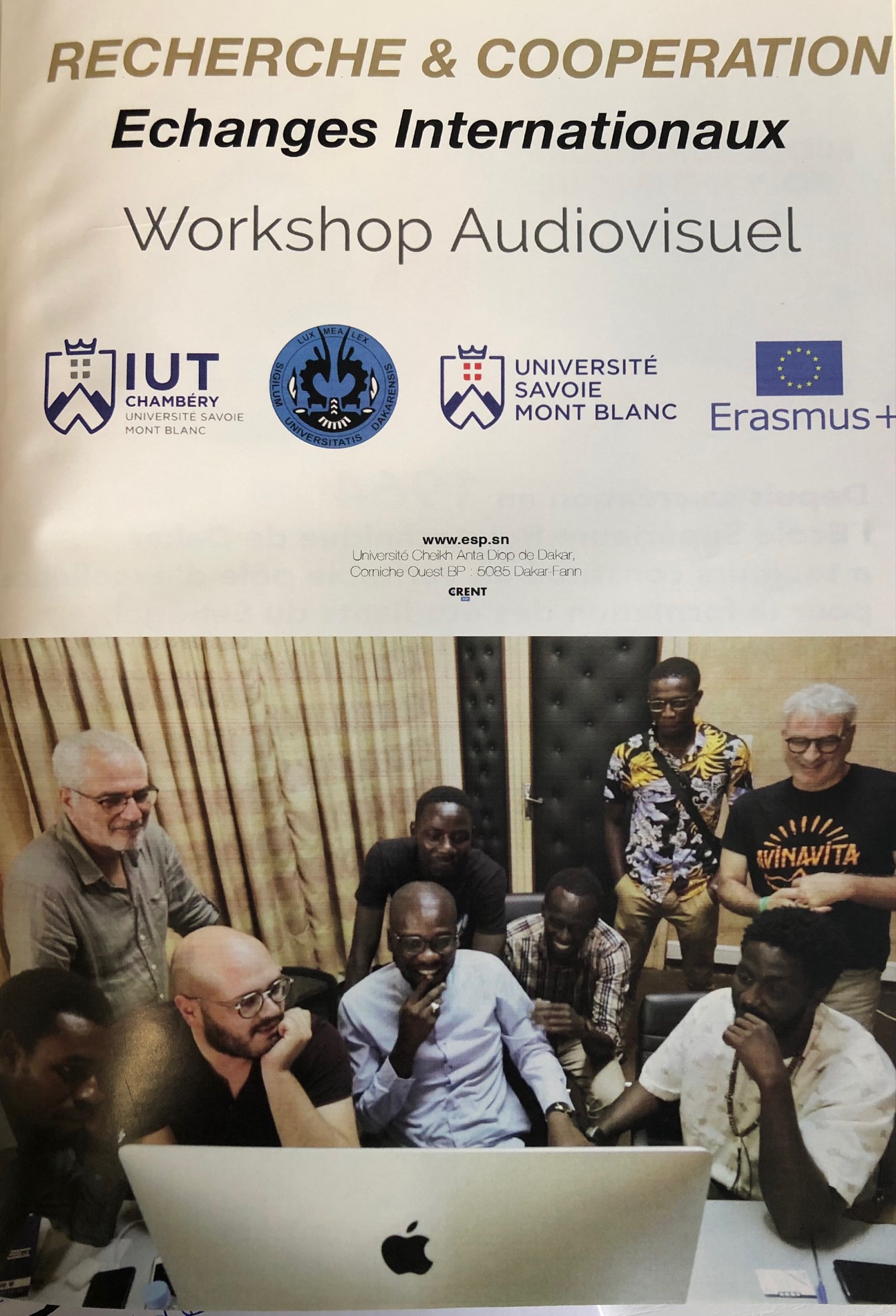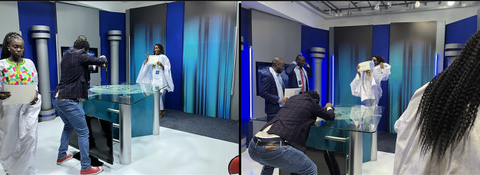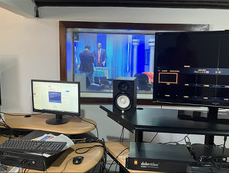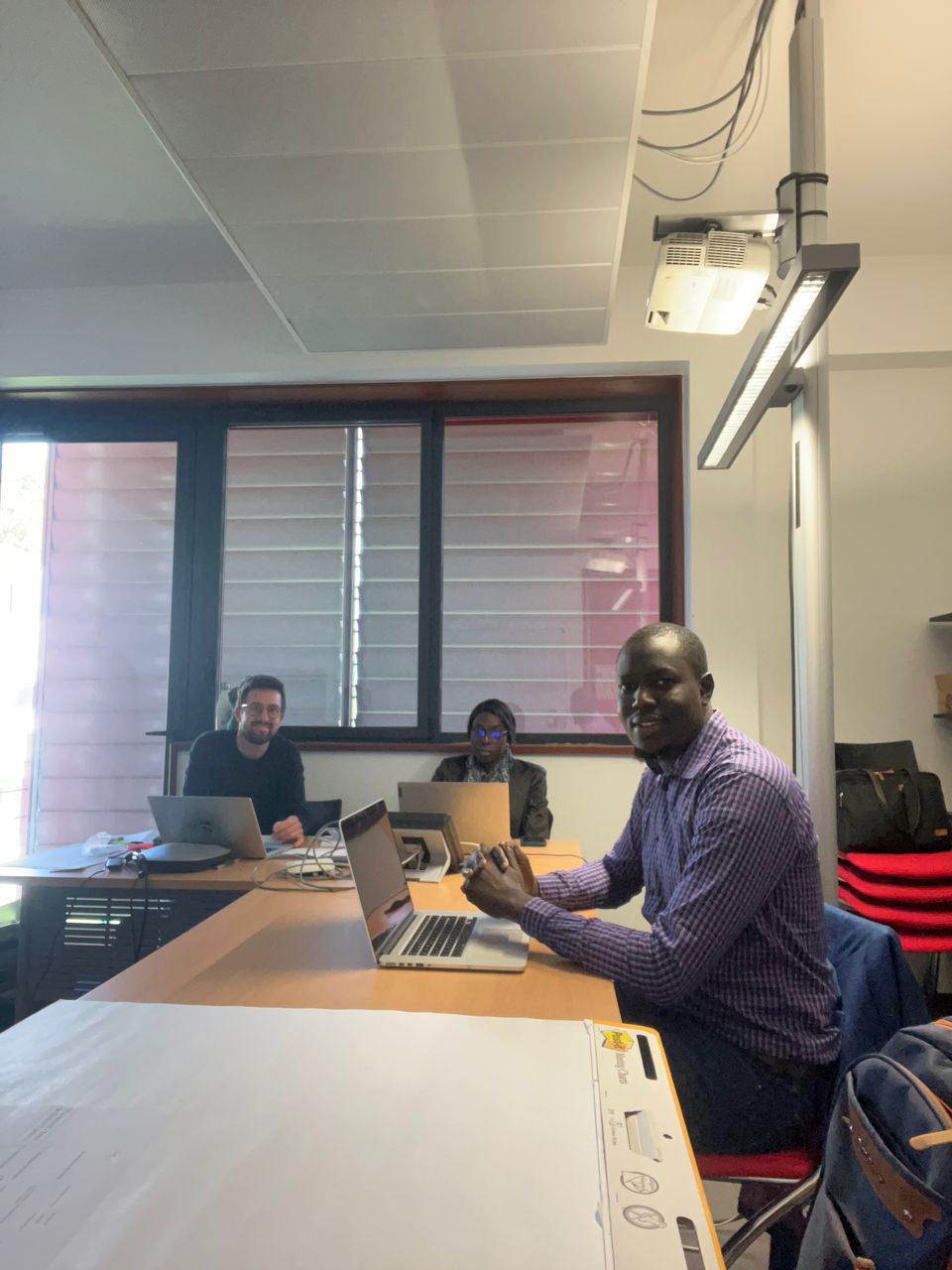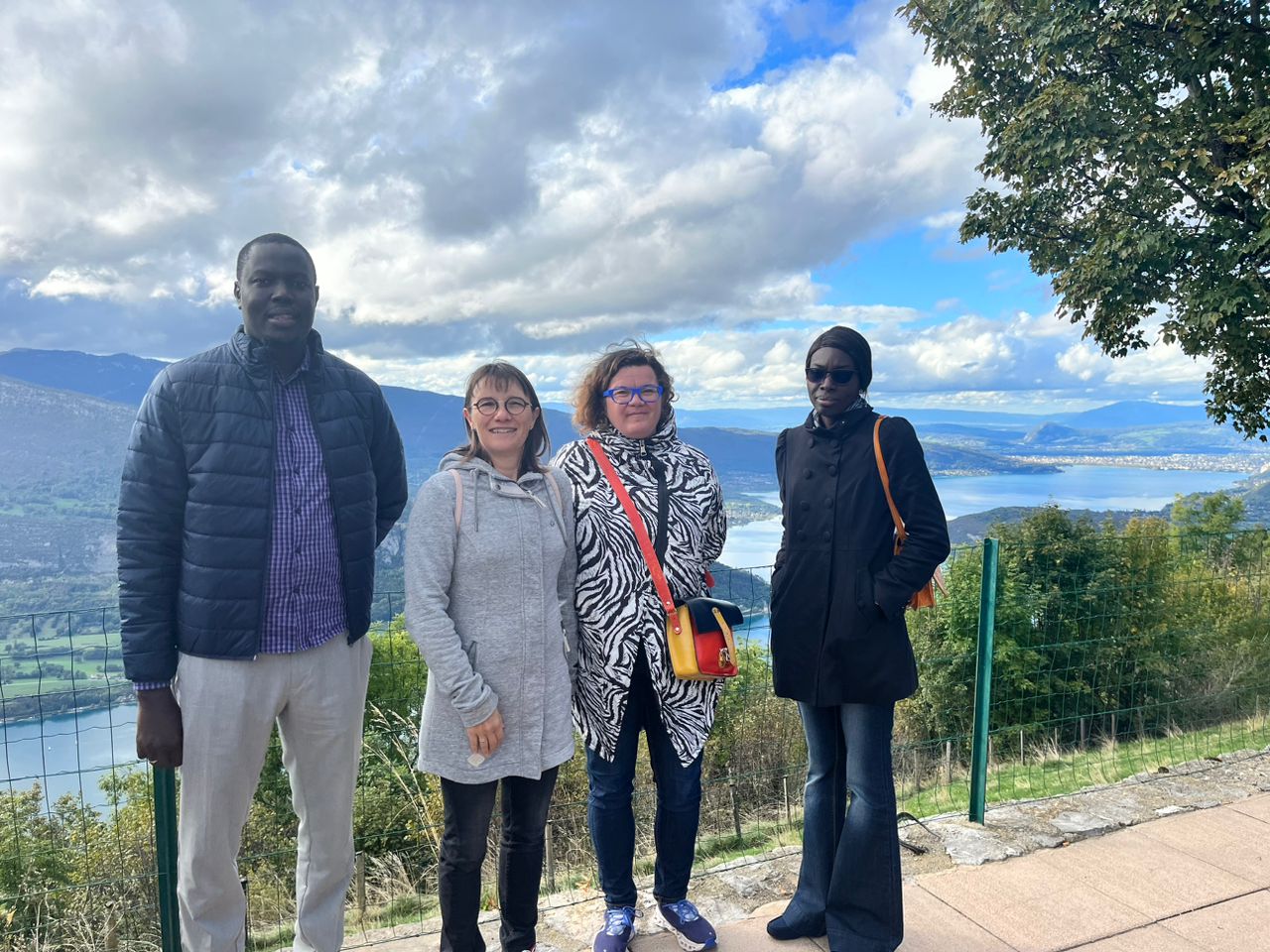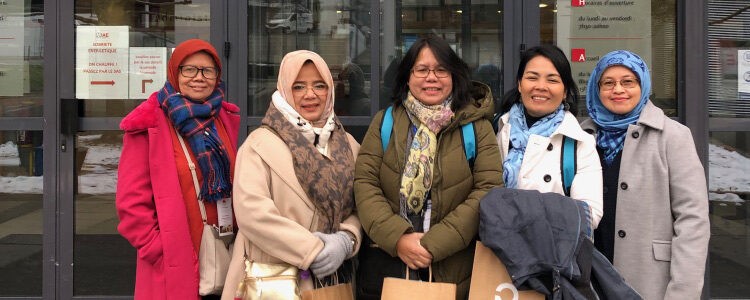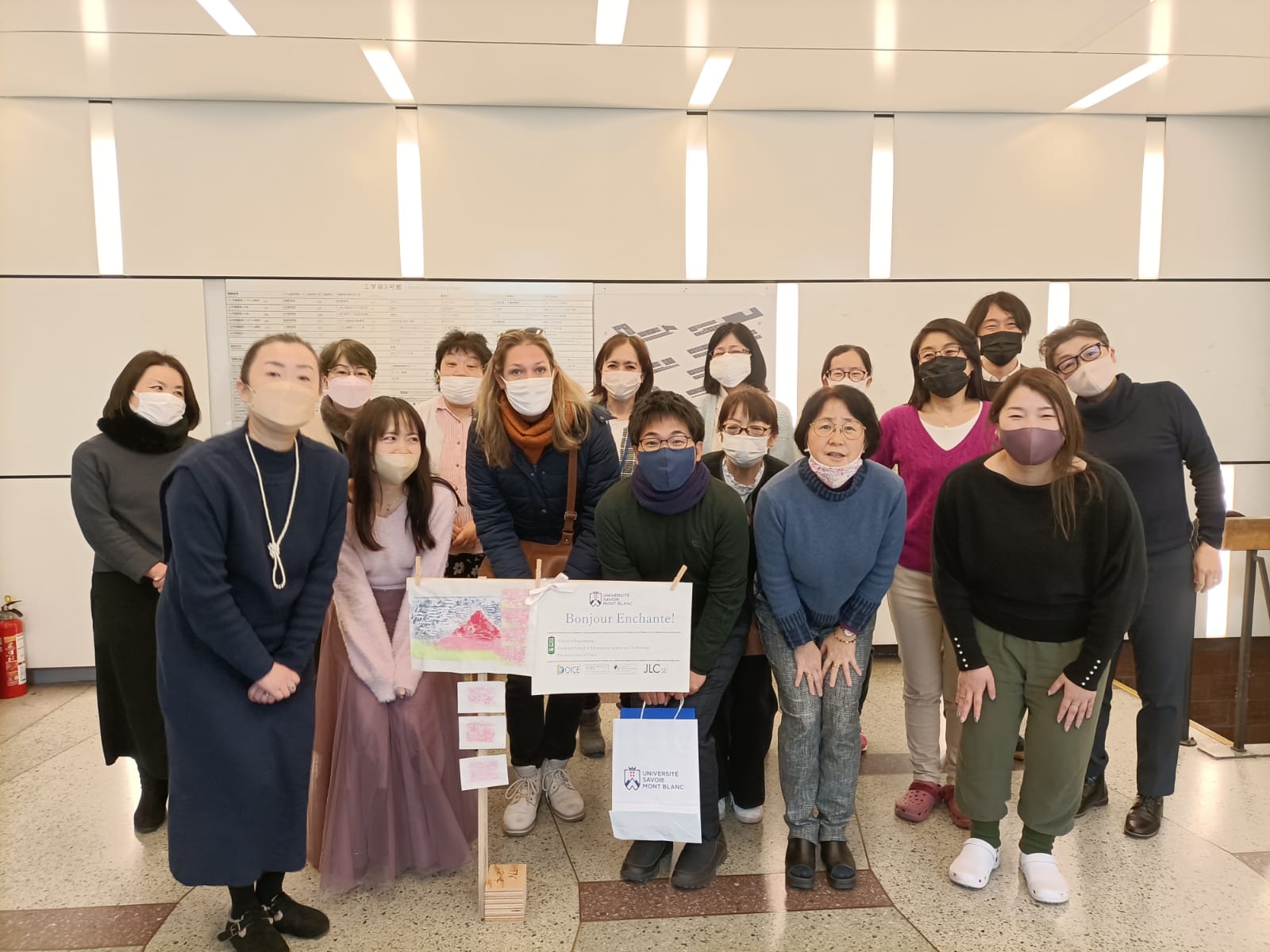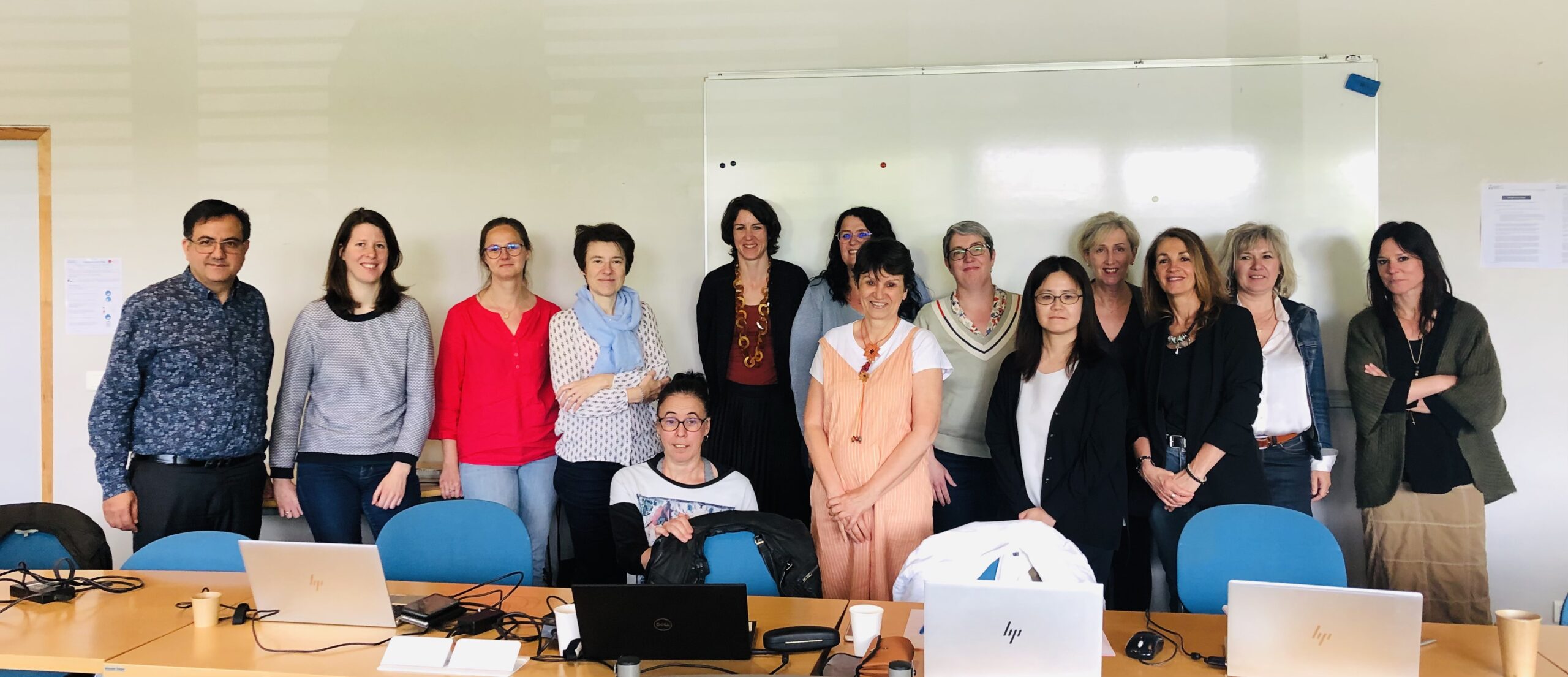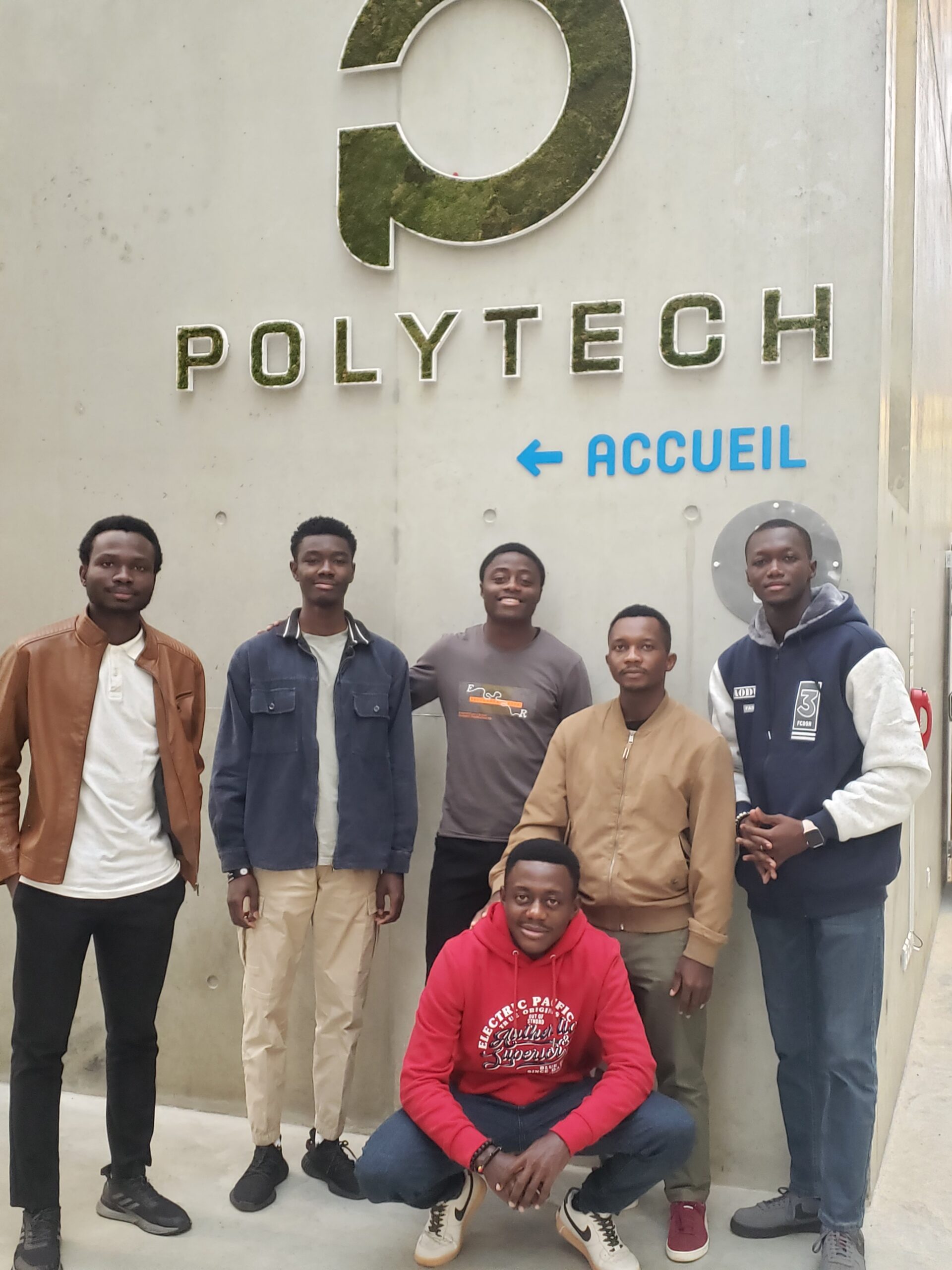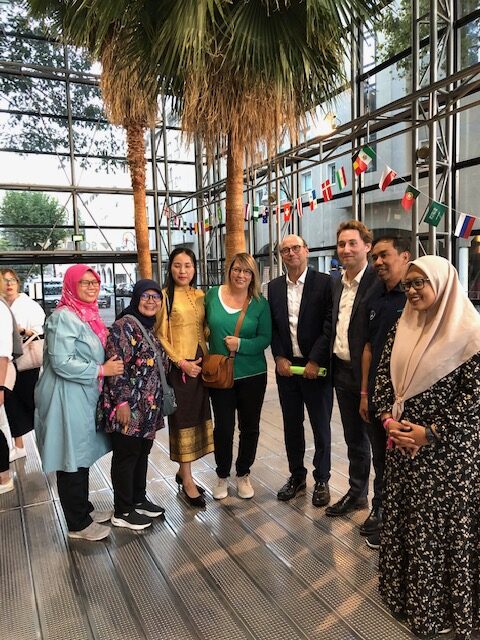Université Savoie Mont Blanc Blanc holds the Erasmus+ Charter for higher education.
For more information on USMB Erasmus policy.
Erasmus+ promotes the European and international mobility of students and staff through mobility programs designed to enhance their skills and employability.
ERASMUS+ Blended Intensive Programme (BIP)
The Blended Intensive Programme (BIP) is a program that combines :
- online learning activities (between transnational and transdisciplinary teams of students)
- a 5-day period of physical mobility.
It uses innovative teaching and learning methods.
A BIP can be organized around challenges, and offers added value compared with existing conventional programs.
Participating in an Erasmus+ intensive program offers students the opportunity to :
- Develop/reinforce knowledge of the proposed academics theme,
- Acquire skills and know-how by working in multicultural teams and experiencing international mobility.
- Improve their language skills, particularly in Romance languages and English.
In addition, the academics program and the mobility period enable participants to develop intercultural skills by immersing themselves in international academic and professional environments.
To take part in a BIP program, students must be eligible for an Erasmus grant and complete the necessary administrative formalities. Otherwise, they will not be able to take part in a BIP mobility program.
Students receive an Erasmus+ grant on a flat-rate basis to cover travel and living expenses:
- 79€ per day for a stay of 5 to 14 days to cover living expenses
- Eco-responsible travel package (bus, train, bike, carpool). A journey is considered eco-responsible if 60% of total distance (round trip) is carried out using these means of transport. The package is adapted according to the distance covered:
- 10-99 km: €56
- 100-499 km: €285
- 500-1999 km: €417
- 2000-2999 km: €535
- Non-eco-responsible travel package :
- 10-99 km: €28
- 100-499 km: €211
- 500-1999 km: €309
- 2000-2999 km: €395
- 56€ per additional day for any period exceeding 14 days and up to 30 days.
- Possibility of receiving a financial supplement for students with fewer opportunities: top-up inclusion. Eligibility criteria are as follows: Be a CROUS scholarship holder (levels 6 and 7), belong to a household with a CAF family quotient less than or equal to €551, reside in a Zone de Revitalisation Rurale (ZRR ), reside in a priority urban district.
Points of attention :
- The distance must be calculated taking into account the place of departure, which must be a fixed address (address during studies at USMB or parental address if different).
- To simulate the distance in kilometers to your host university, use the calculator available at the following address: https: //erasmus-plus.ec.europa.eu/fr/resources-and-tools/distance-calculator
Students who take part in an intensive program and meet the criteria required to validate the program will receive ECTS credits for both the online academic part and the mobility period.
These credits are considered optional if they are not included in the student's academics program.
POUR LES ÉTUDIANTS de l’USMB:
On-site mobility: August 22 to 28, 2025 at Universitatea Transilvania Brasov (Romania)
Remote program: June 19, August 16 and September 13, 2025
Date butoir pour candidater: 15.04.2025
Face-to-face mobility: July 21 to 25, 2025 at Università di Torino (Italy)
Remote program: July 18 and 28, 2025
Application deadline: 30.04.2025
- Sustainable energy in rural areas Sustainable energy in rural areas
Objective: Train participants in sustainable energy solutions for rural areas.
- Virtual phase (July 1 and 20, 2025): Online seminars, instructional videos, preparatory activities.
- Face-to-face phase (July 21-25, 2025, University of Zaragoza): Lectures, plant tours, collaborative projects.
Application deadline: 15.05.2025
Mobilité en présentiel : 27 au 31 octobre 2025 à Universidad de Zaragoza (Zaragoza, Spain)
Programme en distanciel : 20 au 24 octobre 2025
Date butoir pour candidater : 20.09.2025
=================================================
POUR LE PERSONNEL de l’USMB:
Consulter les BIPs destinés au personnel académique et administratif ici
- BIP Green Business in Europe from 25 to 29.08.25 > BIP fact sheet here.
- BIP Scientific School DataSun 2 from 17 to 21.11.25
- BIP Cardinal Drive for Successful HR in Organization from 8 to 12.12.25
Descriptive sheets for these BIPs will be added shortly.
BIP of past partners :
- Cultural Heritage and Depopulated Areas: Case Studies towards the Preservation of Identity
- The Dynamics between the European Union and the Member States. A comparative (law) perspective
- Ukraine - political, social and cultural approaches
- The Importance of Guidance and Counseling in Students' Life
- Entrepreneurship for creative industries
- Cohesion and sustainability for a brighter future
- Intercomprehension for langugage for specific purpos
- The Social Function of Museums and the Construction of Europe
- Green Month – Innovation and Entrepreneurship in the European Blue Economy
- Intercomprehension for Language for Specific Purposes
- UNITA Borders
- Intercomprehension for languages for specific purpose
- Aesthetic choices and political implications - plurilingual literary writing in Romance languages
- Randopat: On Roland’s path
- Intercomprehension in Romance languages applied to your field of study
- Energy communities in mountain villages
- Enhancing the Franco-Italian Alpine macro-zone for sustainable tourism
- Intercomprehension for Language for Specific Purposes (LSP)
- Sprint to Wellness Nurturing Health by Understanding Human Development
- Scientific methodology in thesis writing in health sciences
- BIP for STEAM teaching, including digital skills, with gender perpsective
- Method of learning styles for primary, secondary and higher education (REAPSES)
- Comprends tú a minha limba romanza?
- Design Thinking.The glue between all disciplines
- Intercomprehension for language for sepcific purposes
- Natural Hazard Common Days
- Decentralized water and waste management systems: appropriate technologies and solutions for resilience and sustainability
- Environmental issues in the European Union
- Intercomprehension for Language for Specific Purposes: enology, viticulture, and tourism
- Interdisciplinary perspectives on youth identities and political social participation
- UNITA Borders
- Italian Language (A1-A2)
- Bioanalytical (Tele) Monitoring for Life Sciences - Medicine, Food Control, Environmental Monitoring
- Dracula between pop culture and tourism
- Women in the cultural scene
- Randopat-Heritrail 3: 'Cultural Heritage Food & Craft in Serra da Estrela: Mushrooms, Cheese and Wool'
- Career and Mental Health Counseling for Students An Integrated Approach
- Persuasion assertiveness and leadership in discourse
- Relax to Wellness
- One step beyond: an entrepreneurial course within the UNITA alliance
- Intercomprehension for Languages for Specific Purposes
- Crossing Linguistic Borders– Translating In United Europe
- The Future of Business Embracing Digital Transformation
- “Entiendes a mia langue românã?”
- History, culture and traditions of mountain areas
- Democracy and political communication – the role of social media
- Challenges of Artificial Intelligence in Law
- Intercomprehension for Specific Purposes: tourism in rural areas
- Intercomprensión entre Lenguas Romances: Teoría y Práctica
Past BIP USMB :
- Sustainability in the Business World
- Green business in Europe, Managing resilience and sustainability in Europe
- SUNMat. Critical Raw Material for Solar Development
- "Multidisciplinary approaches to Antiquity and its heritage. Regards croisés sur les femmes et la condition féminine dans l'Antiquité
- Interculturalidad
Important to apply for a BIP:
- Please consult the BIP description by clicking on the program title. You'll find the prerequisites, as well as the dates of the online and face-to-face parts.
- Application: apply at least two months before the classroom session and one month before the online session. An early application increases your chances of acceptance and facilitates administrative management.
- Be aware that, as with any mobility program abroad, the administrative process involves several stages. The student is the main actor in this process, and must be proactive to ensure the success of his or her project.
Please prepare the following documents to be uploaded at the end of the Move On application form:
- A typed CV in French,
- A letter of motivation in French, dated and signed,
- A bank statement (RIB) from a French bank account in your name,
- The final award notification from the CROUS if you are receiving a grant based on social criteria,
- A certificate of disability (MDPH) if you are disabled.
Click on image to enlarge
*Step 2 of the infographic: Applicationform (This form is equivalent to a scholarship application).
Application and selection at USMB :
- Submit your application at least two months before the start of the program to facilitate administrative management.
- To take part in BIP, you need to obtain the agreement of your academics supervisor by having the PDF Move On form signed by your supervisor, and send this document to the international relations office in your department.
- Once approval has been obtained and the IR office has been informed, your application for an Erasmus grant will be evaluated by the Commission d'Orientation des Relations Internationales (CORI), which meets the first week of each month.
All the administrative formalities relating to the Erasmus grant mentioned below must be carried out with your component's grant manager.
Before mobility :
Consult the practical information to prepare your departure abroad.
1.draw up an Erasmus learning agreement two formats are possible (they have the same value):
- Learning Agreement / Contrat pédagogique (version .doc, .pdf, paper)
- Online Learning Agreement (OLA ) (paperless version via MoveON's outgoing mobility portal)
This document must be completed and signed before departure by :
- the student,
- USMB's head of academics ,
- the academic director of the host university.
It's up to the student to complete this document and have it signed by the various parties involved. Here's an example of how to fill in this document.
The educational contract formalizes your mobility and specifies the academic content of the program. It guarantees recognition of the activities carried out abroad.
This document must be sent by e-mail (signed by all three parties) before your departure to your component's scholarship manager.
2. Draw up an Erasmus mobility contract: This document will be e-mailed to you by your scholarship manager for signature. It can be signed digitally and then e-mailed back to your component's scholarship manager.
3.send a copy of your European Health Insurance Card :
Send a copy of your card (valid for the entire duration of your mobility) by e-mail to the scholarship manager at your university.
During mobility :
1 Fill in and sign a final certificate: This document, signed by the host university, attests to your presence on site (indicate only the dates of physical mobility, not including travel days). Scan the document and e-mail it to your component's scholarship manager as soon as you receive it.
After mobility :
1.submit the attestation of achievement or transcript of grades provided by the host university: Send this document by e-mail to the scholarship manager at your university.
2 Completing and submitting the mobility report: Participants will receive an e-mail directly from the European Commission with an access link to complete this report online. Submission of this report is essential to receive the balance of the grant.
ERASMUS+ International Mobility Credits
International Credit Mobility (ICM) is a mobility project between Erasmus+ countries (European Union member states and associated third countries) and partner countries.
Program priorities:
- Inclusion, with a particular focus on audiences with fewer opportunities (students and staff with disabilities; learners from low socio-economic backgrounds, people facing geographical obstacles, etc.). Additional funding and new mobility formats are planned to encourage the participation of these audiences in the Erasmus+ 2021-2027 program.
- Ecological transition: additional funding (sustainable travel package) is provided to encourage the use of transport that emits less greenhouse gas. Applicants are also encouraged to include a sustainable development education dimension in their projects.
ENTRANT STUDENTS from PARTNER UNIVERSITIES:
- SMS Student Mobility for Studies: from the 1st year of higher education, for a duration of 2 to 12 months. These mobilities can take place in a hybrid format, combining virtual or remote activities AND physical mobility, which can be of short duration (5 to 30 days).
- SMP Student Mobility for Placement: from the 1st year of study, for a period of 2 to 12 months.
- Combined mobility: internship integrated into the study period.
Attention: 12 mois maximum de mobilité physique par cycle d’étude
INCOMING STAFF FROM PARTNER UNIVERSITIES AND OUTGOING STAFF FROM USMB (teaching staff, permanent or contract administrative staff):
- Staff mobility for Teaching Assignment (STA): lasting from 5 days to 2 months, excluding travel, with a minimum of 8 hours of teaching per week to or from participating countries.
- Staff TrainingMobility(STT ): lasting from 5 days to 2 months, excluding travel, for a period of internship or observation in a higher education institution or other relevant organization. Eligible activities include structured courses and targeted language training.
- Combined mobility: possibility of combining a teaching activity(minimum 4 hours of teaching) and an academics activity over the same period.
Doctoral students:
Doctoral students with a teaching contract can go on teaching or academics assignments. As students, doctoral students can take part in study visits; these can be in hybrid form (distance learning + face-to-face). In contrast to other students, they can take part in a short physical mobility program of between 5 and 30 days, without having to combine it with virtual or distance learning activities.
Please note: conferences are not eligible.
- Agreement 2019: from 01/08/2019 to 31/07/2022
| BURKINA FASO | SENEGAL | |
| Incoming SMS | √ | √ |
| Incoming STA | √ | √ |
| Outgoing STA | √ | |
| Incoming STT | √ | √ |
| Outgoing STT | √ |
Partner universities by country :
Burkina Faso :
- International Institute for Water and Environmental Engineering
Senegal:
- Université Gaston Berger de Saint Louis
- Cheikh Anta Diop University, Dakar
- Agreement 2020: from 01/08/2020 to 31/07/2023
| BURKINA FASO | JAPAN | |
| Incoming SMS | √ | √ |
| Incoming STA | √ | √ |
| Outgoing STA | √ | |
| Incoming STT | √ | √ |
| Outgoing STT | √ |
Partner universities by country :
Burkina Faso :
- International Institute for Water and Environmental Engineering
Japan:
- Kagawa University
- Okayama University
- The University of Tokyo
- University of Hyogo
- Waseda university
- Agreement 2022: from 01/08/2022 to 31/07/2025
| BURKINA FASO | SENEGAL | LAOS | MALAYSIA | INDONESIA | UKRAINE | |
| Incoming SMS | √ | √ | √ | √ | √ | √ |
| Incoming STA | √ | √ | √ | |||
| Outgoing STA | √ | √ | √ | √ | ||
| Incoming STT | √ | √ | √ | √ | √ | √ |
| Outgoing STT | √ |
| ARGENTINA | BRAZIL | CHILE | COLOMBIA | MEXICO | CANADA | |
| Incoming SMS | √ | √ | ||||
| Incoming STA | √ | √ | √ | √ | √ | √ |
| Outgoing STA | √ | √ | √ | √ | √ | √ |
| Incoming STT | √ | √ | √ | √ | √ | √ |
| Outgoing STT | √ | √ | √ | √ | √ | √ |
Partner universities by country :
SUB-SAHARAN AFRICA
Burkina Faso :
- International Institute for Water and Environmental Engineering (2iE)*
Senegal:
- Cheikh Anta Diop University (UCAD)
NORTH AMERICA
Canada:
- Université du Québec à Trois Rivières (UQTR)*
- Laval University
- Sherbrooke University*
LATIN AMERICA
Argentina:
- Universidad Nacional de Cuyo (UNCU)*
- Universidad Nacional de la Plata (UNLP)*
Brazil:
- Universidade Federal de Vicosa (UFV)*
Chile:
- Universidade Finis Terrae ((UFT)*
Colombia:
- Colegio Mayor De Nuestra Senora Delrosario (UROSARIO)*
Mexico:
- Universidad de Monterrey (UDEM)*
ASIA
Indonesia:
- Universitas Pendidikan Indonesia (UPI)
- Universitas Negeri Jakarta (UNJ)
Laos:
- National University of Laos (NUOL)
Malaysia:
- University of Malaya (UM)
- Universiti Kebangsaan Malaysia (UKM)
NEIGHBORING COUNTRIES
Ukraine:
- Kyiv Academic Univesity (KAU)
- Sumy State University (SUMDU)
* Partner GEMINAE
- Agreement 2023: from 01/08/2023 to 31/07/2026
| JAPAN |
UKRAINE | |
| Incoming SMS | √ | √ |
| Incoming STA | √ | √ |
| Outgoing STA | √ | (*) |
| Incoming STT | √ | (*) |
| Outgoing STT | √ | √ |
*When the security situation permits.
Partner universities by country :
ASIA
Japan:
- Kagawa University
- Okayama University
- The University of Tokyo
- University of Hyogo
- Waseda university
NEIGHBORING COUNTRIES
Ukraine:
- Chernivtsi National University Yuriy Fedkovych (CHNU)*
*Associate partner UNITA
- Convention 2024 : du 01/08/2024 au 31/07/2027
| LAOS | MALAYSIA | INDONESIA | ALGERIE | MAROC | BURKINA FASO | SENEGAL | MADAGASCAR | |
| Incoming SMS | √ | √ | √ | √ | √ | √ | √ | √ |
| Incoming STA | √ | √ | √ | √ | √ | |||
| Outgoing STA | √ | √ | √ | √ | √ | √ | √ | |
| Incoming STT | √ | √ | √ | √ | √ | √ | √ | √ |
| Outgoing STT | √ | √ | √ | √ |
Partner universities by country :
ASIA
Indonesia:
- Universitas Pendidikan Indonesia (UPI)
- Universitas Negeri Jakarta (UNJ)
Laos:
- National University of Laos (NUOL)
Malaysia:
- University of Malaya (UM)
- Universiti Kebangsaan Malaysia (UKM)
PAYS DU SUD DE LA MEDITERANE
Algerie :
- Université M’Hamed Bougara Bourmerdes*
Maroc :
- Ecole Nationale Supérieure des Mines de Rabat
- L’Université Hassan II de Casablanca*
SUB-SAHARAN AFRICA
Burkina Faso :
- Institut International d’Ingénierie de l’Eau et de l’Environnement (2iE) *
Senegal:
- Université Cheikh Anta Diop (UCAD) *
Madagascar :
- Université d’Antananarivo*
- Université de Fianarantsoa
* Partenaire GEMINAE
L’USMB a répondu au premier appel à candidatures du projet MIC en 2015. Depuis, chaque candidature vise à renforcer des relations privilégiées avec un nombre restreint d’universités. L’USMB a géré depuis 2015 un budget MIC total de 2,498 millions d’euros € et organisé 511 mobilités, majoritairement entrantes.
The university relies on MIC to strengthen its links with partners outside the EU, facilitating staff mobility in both directions, as well as IN student mobility. OUT student mobility is financed by regional grants.
The objectives of these mobility schemes are clear: staff mobility enables teams to come into contact with each other for training purposes, to strengthen mutual knowledge, exchange best practices, develop new projects and facilitate the management of partnerships and associated mobility; student mobility enables the internationalization of the career paths of students from partner universities, as well as the internationalization of our own students "at home". In turn, they help us to attract talent and raise our profile on the international scene.
The USMB is part of an international approach with exemplary performances in terms of student mobility. Every year since 2008, the USMB has been well ahead of the pack in the Erasmus rankings for outgoing student mobility.
It is now seeking to focus its strategy by strengthening privileged relationships with a limited number of universities.
This approach should enable us toincrease the number of students admitted each year (in order to rebalance IN & OUT flows) as well as develop scientific collaborations.
The USMB's internationalization strategy focuses on 3 main areas:
1) Development of cross-border relations,
2.the French-speaking world
3. integration into networks.
The development of relations with Morocco, Burkina Faso, Senegal and Canada (Quebec) is directly linked to axes 2 and 3. It also reflects the region's commitment to the French-speaking world, which has been a guiding principle of its IR strategy since joining the Chaires Senghor network in 2013. The French-speaking world is also one of the Auvergne Rhône-Alpes region's development priorities.
In addition, since 2018, USMB has formalized the constitution of the RELIEF network (Réseau d'Échanges et de Liaison entre Institutions d'Enseignement supérieur Francophones), which it founded with UQTR in Quebec and HES-SO in Switzerland. Burkina Faso and Senegal are involved in RELIEF's work on renewable energies and sustainable development. This organization responds to the need to reach out to African audiences, who often have difficulty obtaining visas for Europe or America.
Finally, as part of the construction of our European alliance "UNITA universitas montium", which brings together 6 EU universities, UNITA members have selected some 30 of their best partners outside the EU with whom they wish to strengthen their collaboration. These 30 universities, spread across all continents, are now part of the GEMINAE network.
The 2022 agreement with Latin America (Argentina, Brazil, Chile, Colombia and Mexico) is at the heart of the construction of our European university "UNITA Universitas Montium" and its network of partners outside Europe "GEMINAE".
Since the end of 2020, the USMB has been a member ofUNITA, an alliance of 6 universities including those of Turin (Italy), Zaragoza (Spain), Beira Interior (Portugal), Ouest-Timisoara (Romania) and Pau (France). As one of only 5% of European universities to belong to such an alliance, the USMB stands out and demonstrates its ability to unite university partners around a single structuring project. The UNITA partners share common characteristics that naturally led them to join forces: they are located in Romance language countries, in mountainous, rural and cross-border areas, and wish to place students at the heart of their project, while encouraging the development of innovative teaching practices. Mobility for all is another of the Alliance's key objectives, which is reflected in the ever-increasing number of new forms of mobility.
UNITA is keen to share its best practices and disseminate its model of cooperation with universities worldwide. To this end, UNITA members have selected university partners in Romance-language countries outside Europe with whom they have excellent partnership relations and wish to develop and strengthen their collaboration. These 30 universities, spread across all continents (50% of which are in Latin America), are now part of the GEMINAE network. In addition to sharing best practices, this network aims to invite GEMINAE partners to take part in various activities carried out by the alliance. In addition, UNITA wishes to share with the universities in the GEMINAE network a common approach to multilingualism, based on the tool of intercomprehension in Romance languages, a method which enables speakers of the same language family to work together without recourse to a third language.
USMB's international strategy is increasingly focused on regional rather than bilateral projects. This is the case in Southeast Asia (SEA ), where the USMB intends to work jointly with Laos, Indonesia and Malaysia to strengthenthe academics of future French-speaking tourism professionals. This project is supported locally by the Services de coopération et d'action culturelle of the French embassies in the 3 countries concerned, which have identified academics in tourism as a common need. The USMB is also planning to join the "network of excellence in tourism training" set up under the French government's economic stimulus plan.
Any university wishing to make its contribution to these major challenges within the European edifice needs to develop solid basic and applied sciences, and to attract the most motivated students in this respect. In this context, the two main reasons supporting and stimulating the development of cooperation with Ukraine are, firstly, Ukraine's geopolitical rapprochement with the European Union and, secondly, the fact that Ukraine is a country with a developed science and higher education system stemming from the Soviet period as mentioned above, which nevertheless needs urgent modernization and radical organizational reforms.
The funding for these mobilities is provided in the form of European lump sums.
The MIC grant corresponds to a travel package + individual support (5 days minimum + 2 days travel).
The Erasmus+ agency authorizes stays from 5 days to 2 months (excluding travel time). The funding granted by the USMB for the stay part of the mobility of incoming and outgoing staff is a package of 5 days on site (Monday to Friday) + 2 days travel compensation.
- The travel package is calculated according to the distance in kilometers between the place of administrative residence and the destination.
European Commission distance calculator
Only the outward journey is taken into account in the distance calculation, but the corresponding rate covers the cost of the return trip.
Barème kilométrique du forfait voyage jusqu’à la convention 2023 inclus:
| Between 100 and 499 km | 180€ per participant |
| Between 500 and 1999 km | 275€ per participant |
| Between 2000 and 2999 km |
360€ per participant |
| Between 3000 and 3999 km | 530€ per participant |
| Between 4000 and 7999 km | 820 per participant |
| 8000 km or more |
1,500 per participant |
Montant des bourses jusqu’à la convention 2023 inclus:
| Stay/month
STUDENTS |
Stay/day
PERSONNELS |
|
| Mobility to France (incoming) | 850€ | 160€ |
| Mobility to a partner country (outgoing) | n/a | 180€ |
Barème kilométrique du forfait voyage à partir de la convention 2024:
| Between 100 and 499 km | 211€ par participant |
| Between 500 and 1999 km | 309€ par participant |
| Between 2000 and 2999 km |
395€ par participant |
| Between 3000 and 3999 km | 580€ par participant |
| Between 4000 and 7999 km | 1188€ par participant |
| 8000 km or more |
1735€ par participant |
Montant des bourses à partir de la convention 2024:
| Stay/month
STUDENTS |
Stay/day
PERSONNELS |
|
| Mobility to France (incoming) | 900€ | 190€ |
| Mobility to a partner country (outgoing) | n/a | 190€ |
Payment of grants to USMB staff ( academics and/or teaching mobility)
- Payment of a grant directly to the staff concerned, who will then take charge of their mobility (booking and purchasing travel tickets, hotels, etc.).
- Une avance de 100% du forfait voyage et de 75% du soutien individuel interviendra avant la mobilité dans la mesure du possible, le solde de 25 % du soutien individuel sera versé à l’issue de la mobilité à réception des documents justificatifs (attestation de présence + rapport final Erasmus+).
Payment of scholarships to incoming staff ( academics and/or teaching) from partner institutions:
- Payment of a grant directly to the staff and students concerned.
- For incoming mobilities: the participant will receive financial support on arrival within a suitable timeframe.
For ENTRANT STUDENTS:
- 2 calls for applications are launched during the year:
- in January/February for the 1st semester of thefollowing academic year;
- in September/October for the 2nd semester of thecurrent academic year.
For INCOMING STAFF from PARTNER UNIVERSITIES and OUTGOING STAFF from the USMB:
Applications can be received throughout the year on a rolling basis, or in response to specific calls for applications, notably for staff from partner universities to take part in USMB events such as S.M.I.L.E. and International Week.
DOCUMENTS REQUIRED FOR ALL MOBILITIES:
- Mobilités d’enseignement (STA out et in) pour sortants et entrants : Contrat pédagogique pour les mobilités d’enseignement (learning agreement) complet, signé par les 3 parties (enseignant + composante de l’USMB + université d’accueil). A demander à erasmus@univ-smb.fr.
- Mobilités de formation (STT out et in) pour sortants et entrants: Contrat pédagogique pour les mobilités de formation des personnels complet, signé par les 3 parties (personnel + composante + établissement d’accueil). A demander à erasmus@univ-smb.fr
- Mobilités combinées (STA/STT out et in) pour sortants et entrants: Contrat pédagogique pour les mobilités combinées (learning agreement) complet, signé par les 3 parties (enseignant + composante de l’USMB + établissement d’accueil). A demander à erasmus@univ-smb.fr
Tous les participants recevront ensuite un Contrat de financement (grant agreement) établi par la DRI et signé par le/la vice-président(e) en charge des Relations Internationales. Ce document précisera le nombre de jours de mobilités et le montant de la bourse allouée. Il sera à compléter et à signer par la personne avant son départ en mobilité (signature manuscrite originale requise).
Please note: allrequests for mobility by USMB staff must be validated by the component to which they are attached, by completing thecomponent's travel authorization form (in addition to the DAAE).
Prepare your departure: consult practical information
You're going on an international exchange: Are you in good standing with the USMB?
Demande d’autorisation d’absence à l’étranger (DAAE) sur l’intranet.
Summary:
- Certificate of attendance:
To be signed by the host establishment at the end of the stay (5 days excluding travel days) and sent to the DRI's Erasmus + Unit (Marcoz site).
Contact: erasmus@univ-smb.fr
- Erasmus+ participant report:
To be completed online. Participants will directly receive a message generated by the European Commission platform in the form of an invitation with a link to access the form.
SENEGAL:
- A Cheick Anta Diop University (UCAD) in Dakar:
Teaching mobility in November 2021:
Three members of staff from the "Sound and Image Techniques" professional degree program at Chambéry's IUT went to Dakar, Senegal. to the Ecole Supérieure Polytechnique de l'Université Cheick Anta Diop (UCAD) in Dakar, Senegal.
The aim of the intervention was to initiate the introduction of audiovisual teaching at the University of Dakar, in particular through a concrete learning situation and the realization of an audiovisual project.ealisation of an audiovisual project.
- Serge Hélies' academics mobility in May 2022:
Testimonial: "Following the workshop held with ESP teams and students at UCAD in November 2021, we worked on and submitted a European capacity-building application entitled XAM XAMALÉ. It is scheduled to run for 3 years and includes the University of Turin (a UNITA member), the CESTI of the University of Dakar, UCAD (UNITA's GEMINAE partner) and the ISEP in Thies.
My trip in May consisted in meeting the various partners in person, and carrying out a check-up of the premises and equipment of the two establishments in Senegal likely to host a work-study audiovisual vocational bachelor's degree.
A positive outcome for this field mission, which, after working remotely, enables us to envisage the eventual positive return of the dossier with a much more concrete overview of the situation and resource persons".
- Teaching mobility from March 7 to 11, 2022 for Pascale BALLAND, university professor and researcher at the SYMME Laboratory, specializing in mechanics and materials.
The aim of the project is to make "experimental machines or devices" accessible to students by means of online practical work as well as in real-life situations, with the help of interactive videos, validation MCQs and summary sheets.
This system will be deployed in Senegal and France on the Moodle platform, either as a complement to existing practical work, for validation before a session or for free access.
The initial aim is to validate the concept and determine the relevance of such a product. At least 3 sequences will be offered at the start of the 2023-2024 academic year, focusing on the mechanical characterization of materials, for 150 students per country. Two students from each country will be involved in setting up the content during an end-of-year internship, with both technical and pedagogical supervision.
- Mobility of academics in the USMB APPRENDRE Department on the Moodle digital teaching platform for two colleagues Mr. FALL, Baye Mama and Ms. SENE Ndeye Awa from Cheikh Anta Diop University (Senegal) from October 16 to 20, 2023.
Objectives : To support teaching through the use of digital technology in learning (scripting courses using the Moodle platform), and in particular to continue the work initiated in collaboration with Pascale Balland (university professor at theAnnecy IUT, researcher at the Systèmes et Matériaux pour la Mécatronique (SYMME) laboratory and specialist in mechanics and materials) on the introduction of "virtual" practical exercises for students in the field of mechanical characterization of machine materials, using interactive videos, validation ecMs and summary sheets.
======================
SOUTH-EAST ASIA
- academics mobility in January 2023 for partners in SOUTH-EAST ASIA as part of thehe project around French language teaching and tourism training:
université Savoie Mont Blanc (USMB) welcomed 5 partner universities from Southeast Asia:
- National University of Laos,
- University of Malaya, Malaysia (Universiti Malaya),
- National University of Malaysia (Universiti Kebangsaan Malaysia),
- Indonesian University of Education (Universitas Pendidikan Indonesia),
- University of Jakarta, Indonesia (Universitas Negeri Jakarta Indonesia).
This week of immersion in the International Relations Department (DRI) enabled us to meet our partners and lay the foundations for future work between the universities.
Members of the delegation were welcomed by members of the International Relations Department and USMB teaching staff. The purpose of this meeting was to :
- Develop partnerships with and between Asian universities;
- Support the local education system by supporting the academics French-speaking students in eco-management, management and tourism marketing;
- Boosting French language sections in these 3 countries;
- Supporting the technical academics of future professionals and teachers;
- Promote the USMB's expertise in tourism.
- Teaching mobility for 2 lecturers from IAE Savoie Mont Blanc's Centre International de Tourisme, Hôtellerie et Management des Evénements (CITHEME): Florence Besson Reynaud and Pierre Folliet at the Tourism SUMMER SCHOOL in MALAYSIA (University of Malaya) from July 24 to 28, 2023.
Objectives Within the framework of the E+KA 171 2022 project, to set up intensive training courses in tourism-related professions, going beyond purely linguistic aspects, shared by the 5 universities of the 3 partner countries, i.e. Laos, Malaysia and Indonesia, during academics sessions for students and teachers in the courses concerned.
This first edition of the Summer University in Tourism was successfully held in Kuala Lumpur, thanks to the support of South-East Asian universities and partners such as the Agence Universitaire de la Francophonie and the French Embassy.
30 students and 12 colleagues from the 5 partner establishments (University of Malaya, Universiti Kabangsaan Malaysia, Universitas Negeri Jakarta Indonesia, Universitas Pendidikan Indonesia, National University of Laos) worked on a project to create "tourism products", alternating classes and work sessions in international groups in a "business challenge" format, providing an opportunity for numerous exchanges in international teams on concepts, marketing, finance, communication... but also on cultural diversity.
Testimonial Florence BESSON-REYNAUD: "I had the immense pleasure of teaching in South-East Asia for the Summer University in Tourism, and came back dazzled by the dazzling diversity of cultures, languages, gastronomies and religions of the participants from Malaysia, Indonesia and Laos... but above all touched by what connects us so strongly beyond our differences".
========================
With JAPAN:
- Mission Okayama Erasmus+ Daysacademics mobility from April 10 to 14, 2023 for seven USMB administrative staff.
Objectives: Participate in a week of immersion and exchange of best practices within the international relations department of Okayama University on the occasion of the Erasmus Days to use Okayama as an example of how Japanese universities operate and how they differ from USMB's practices in the participants' various fields of expertise.
Minutes :
https://chenevieruraokayamauniv.files.wordpress.com/2023/05/news-erasmus-day-long-2.pdf
- Christophe Courtin's teaching mission in Kagawa:
Among other things, the aim was to show how IoTs can beused in a fun , interactive application that respects UI/UX Designprinciples. Thefieldsofapplication are varied:digital art, education, etc. It was more of a workshopthana lecture forstudents with a poorcommandofEnglish.Theapproximately 2-hoursessionswere scheduled totake place after the regular classes of their academics , and the targetaudience ranged from undergraduates to masters (introduction toUI/UX Design anddemonstration through awiredexample (electronic hardware) ; installation ofArduino softwareand hands-on use of the programs provided toexperiment with operation ; makinga game with real-lifeconnected objects ). The program also includedmeetings withteachers,researchers andmanagers (Vice-
President, coordinator, etc.), and Iwas able to visit departmentsand a mechatronics laboratory.
This mobility reinforced my my ability to teach in English and to to consider anotherculture in a field a field strongly linked to'human. This openness cultural is very enriching, even passionnante to put things into perspective and adapt and adapt some of our professionalpractices.
This mobility shouldenable the partnership to be extended to give concrete form to COIL (Collaborative Online International Learning) between l'IUT de Chambéry and the'université de Takamatsu. In the first stage, we are planning exchanges d'one or of several trainees. The next logical step would be to propose a project including French and Japanese students. L'workshop proposedé in situ to each group initially. The French and Japanese would
then work together either face-to-face or remotely'student mobility). L'workshop could keeper form of'a transverse module, but with a more pronounced anchoring in thees academicss and japonaise.
- academics mobilityat the University of Tokyo (Japan), from February 13 to 17, 2023 by Célia Merias, coordinator of the Partnerships Department at the International Relations Office.
Objectives: Immersion in the International Relations Department of the University of Tokyo and exchange of best practices on issues such as welcoming international students, preparing students for international mobility and negotiating and managing bilateral agreements.
- academics mobility forMs Emi Saito (Research and International Cooperation Division) from Okayama University (Japan), from May 22 to 26, 2023,
Objectives Immersion in various USMB departments and workshops to exchange best practices, in order to understand how French universities operate and how they differ from Okayama University, using USMB as an example.
-Organization and operation of USMB's international relations department.
-Implementation of the Erasmus+ program
-Discussion and meeting with UFR LLSH colleagues on international mobility management, pedagogical management and internship management.
- academics mobility at the University of Kagawa in Japan for 3 USMB colleagues: Yoann Encrenaz (Head of Communications & IS at the Continuing academics Department), Guillaume Maillet (Graphic Designer - Communications Department/Continuing academics Department) Justine Simonet (Manager of the Alternance Pole - Annecy IUT) from July 10 to 14, 2023.
Objectives: Immersion in the International Relations Department of Kagawa University, workshops and exchanges of best practices on the themes of Communication and Continuous academics :
-Lifelong learning in a changing Japanese society
-Kagawa University's digital transformation strategy
academics and international internship program for engineering students
- university/company links and intellectual property in industry
================
BURKINA FASO:
- With theInternational Institute for Water and Environmental Engineering:
STA PAC mission Sayon SIDIBE and Seyram SOSSOU 2iE
- In September 2023, Polytech will welcome 5 students from the Institut International d'Ingénierie de l'Eau et de l'Environnement (2iE) in Burkina Faso to its Le Bourget campus for credit mobility (semester) or as part of the double degree program in Sustainable Building Engineering (BEE) and Ecologie industrielle et territoriale (EIT).
================
- SMILE 2022: academics and/or teaching mobility from June 20 to 25, 2022 for 8 colleagues from Cheick Anta Diop (UCAD) and Gaston Berger universities in Senegal, Institut International d'Ingénierie de l'Eau et de l'Environnement (2iE) in Burkina Faso and Kagawa University in Japan.
Objectives: Participation in the SMILE 2022 "Summer Modules for Intercultural and Language Education" program (USMB Language Weeks) 15-hour language course modules/week (English, Spanish, French, Italian, intercomprehension in Romance languages) + Networking activities, exchange of best practices and discovery of the region.
To find out more about SMILE 2022 activities, click here.
- SMILE 2023: academics and/or teaching mobility from June 19 to 23, 2023 for 15 colleagues from Argentina (UNLP and UNC), Brazil (UFV), Burkina Faso (2iE), Canada (UQTR and Sherbrooke), Colombia (Universidad del Rosario), Mexico (Universidad de Monterrey), Senegal (UCAD) and Japan (Kagawa University).
Objectives: Participation in the SMILE 2023 "Summer Modules for Intercultural and Language Education" program (USMB Language Weeks) 15-hour language course modules/week (English, Spanish, French, Italian, intercultural communication and intercomprehension in Romance languages) + Networking activities, exchanges of best practices and discovery of the region.
To find out more about SMILE 2023 activities, click here.
===============
- Mobility of academics as part of the USMB International Week from October 10 to 14, 2023 for 7 colleagues from partner institutions in Southeast Asia (University of Malaya, Universiti Kabangsaan Malaysia, Universitas Negeri Jakarta Indonesia, Universitas Pendidikan Indonesia, National University of Laos) and Ukraine (Sumy State University and Chernivtsi National University Yuriy Fedkovych (CHNU):
Objectives :
-Immersion in the International Relations Department and working meetings to exchange best practices, targeted according to the participants: setting up intensive training courses (summer school) in the tourism professions, academics in the use of Moodle tools, etc.
academics to the workings and challenges of the Erasmus+KA171 program
-Participation in the International Week organized by the USMB, an event that brings together numerous international partners to exchange ideas and best practices, promote mobility opportunities at their institutions, improve cooperation processes, and discover the USMB's academics offer, its campuses and the Pays de Savoie region.
